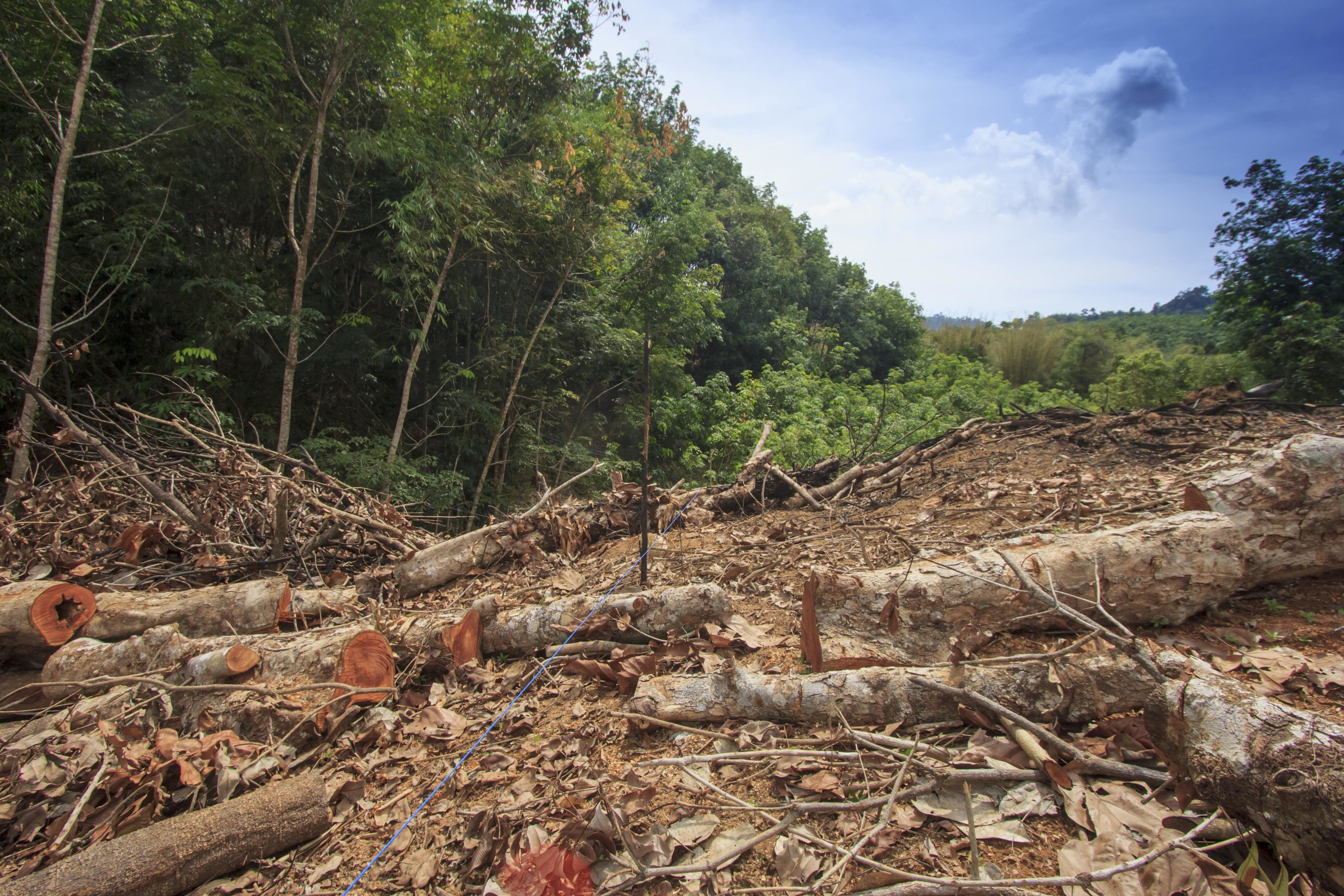An historic problem
However, it is important to note that this is not a new phenomenon in emerging markets: much of the west has already been deforested over many centuries of urban expansion. Before the industrial revolution, forests covered an estimated 80-90% of Europe; today, the figure is about 37%. 4 Up to half of all the world’s primeval forests have been lost to human activity in recorded history.
Much deforestation is caused by western consumption: the EU was responsible for 16% of global tree loss due to imports from countries where deforestation is prevalent in 2017, totaling 2,000 square kilometers of land, according to the World Wildlife Fund.5
Deforestation can be countered by extensive reforestation, and could even combat climate change, as studies found planting one trillion trees would be enough to stop global warming. Such a planting campaign would require 9 million square kilometers of land, an area the size of the United States. The tree planting could be targeted at about 20 million square kilometers of deserts, wastelands and areas where the soil has been degraded due to over-intensive agriculture, the UN has said.






















